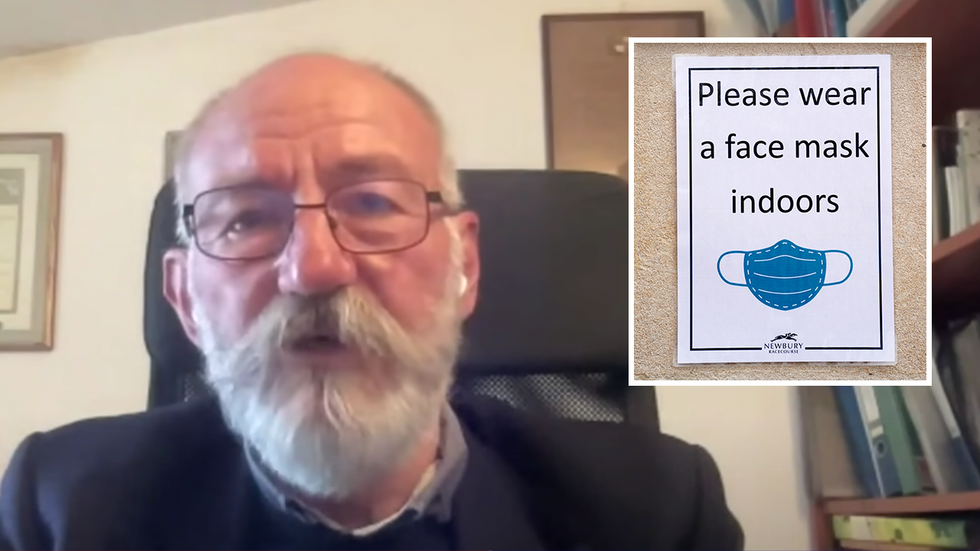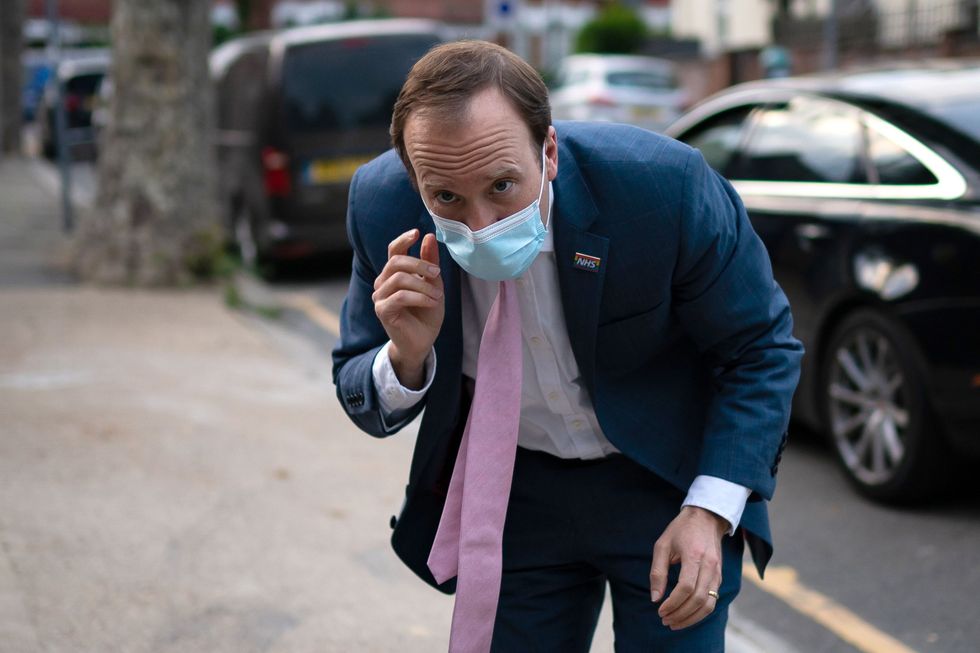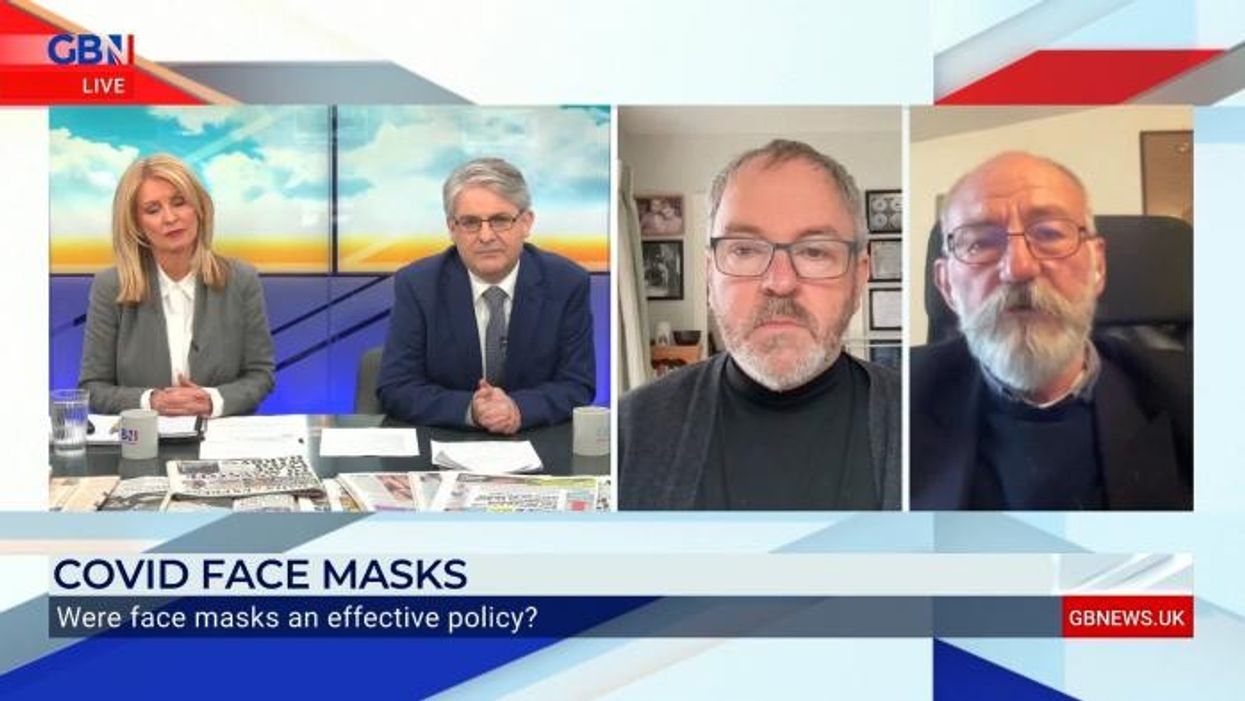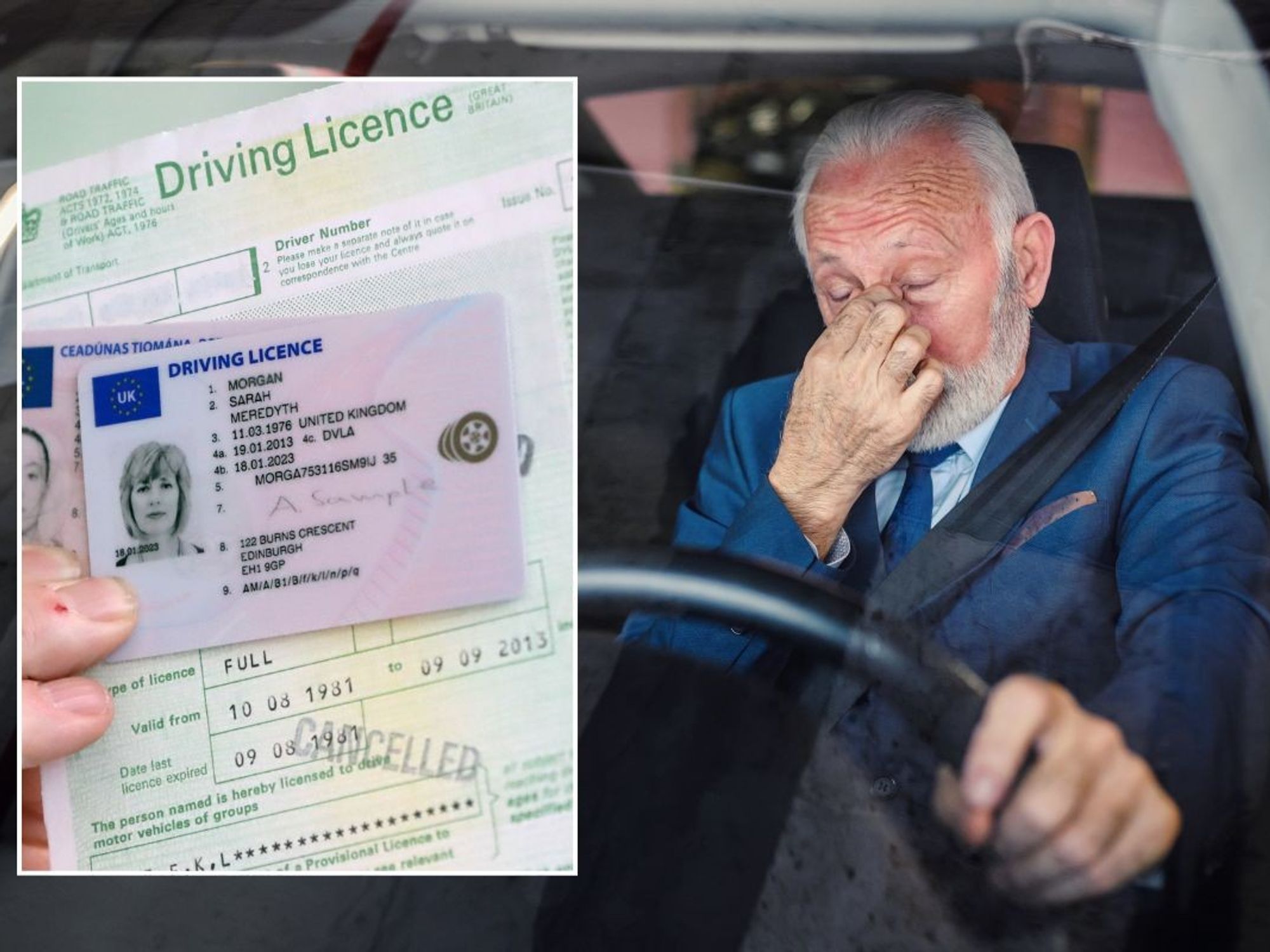A new report suggests the data used as the basis for face masks was insufficient
Don't Miss
Most Read
Trending on GB News
The evidence used to justify the use of face masks during the pandemic was “abysmal”, according to a leading doctor.
It comes after a report suggested there is not enough evidence to suggest medical-grade face mask protect the vulnerable from Covid.
A rapid review report published by the UK Health Security Agency (UKHSA) looked into whether N95, KN95 and FFP2 face coverings prevent clinically vulnerable people from catching Covid.
Speaking exclusively on GB News, one of the doctors behind the trial, Tom Jefferson, said studies used by the Government to justify mask mandates were not strong enough to be the basis of any policy.

Doctor Tom Jefferson criticises the studies that led to face mask mandates being implemented
GB News / PA
He told Esther McVey and Philip Davies: “We looked at the UKHSA review, that’s the predecessor for Public Health England, which the Government provided as a basis in a Parliamentary question for the mask mandates.
“The review contained 25 studies, two trials and 23 so-called observational studies, which is a low amount of evidence.
“We found that the quality of the evidence was abysmal. Twelve of the studies shouldn’t have even been included in the review because they don’t compare masks with anything.
“They’re non-comparative, they have a non-comparative design, so they can’t really inform any policy. That’s the bottom line.”

Ex-Health Minister Matt Hancock is seen wearing a face mask
Aaron ChownProfessor Carl Heneghan, professor of evidence-based medicine at the University of Oxford, spoke on whether the international community is to blame for the UK Government’s decision to impose mask mandates.
He said: “There has been this flip-flop in people’s opinions that happened in the first couple of months of the pandemic, many advisers flip-flopped.
“What the UKHSA’s job is, is to inform politicians so that you can make informed decisions.
“When you look at this evidence, it’s so poor quality. Let me just give you three egregious examples.
“One is that it included a predator’s journal, that’s a journal which has no peer review in place so it shouldn’t have been in there in the first place.
“It has populations which don’t even represent the people like in Brazil, and thirdly, it had this phenomenon called ‘cherry-picking’ from the ONS data.
“This is just like GCSE, O-level questions. If I gave you a data set and said six of them show masks work, and six show they didn’t, which one would you pick?
“Is it ok to just pick a one, two-week period and present that information to the public and politicians? That’s what the ONS and the UKHSA did, and that’s completely unacceptable.”
A previous review by the UKHSA was wider in scope and concluded that all types of face coverings are effective in reducing transmission of SARS-CoV-2 to some extent in healthcare and community settings.
It found that N95 respirators are likely to be the most effective.
A Cochrane review published last month, however, found the effectiveness of masks can’t be fully deciphered due to a lack of evidence.
It comes as questions are raised over whether face masks should be reintroduced, with the UKHSA warning over the XBB.1.16 strain of Covid, also known as Arcturus, starts to spread across the UK.









